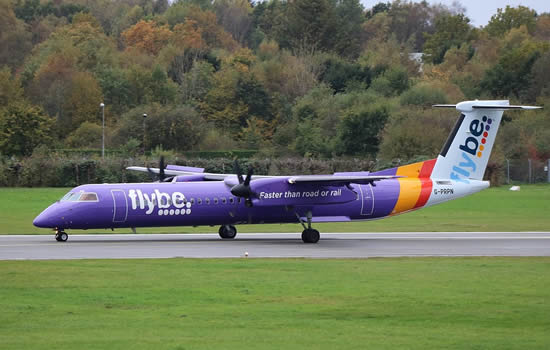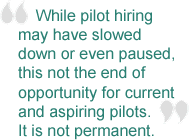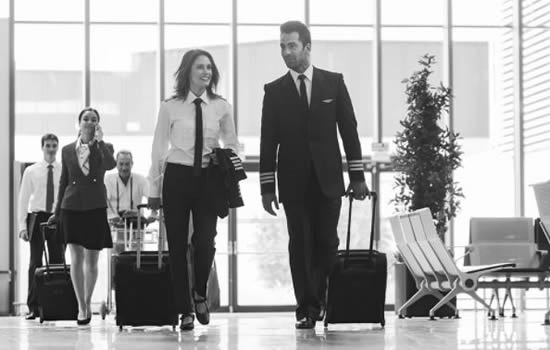 |
The Pilot Shortage is NOT OverBy David Rimmer, President of Talon Air Jets |
In the month that UK Pilots Union BALPA controversially advised that £100k would be better spent not training to be a pilot, prompting many angry exchanges on LinkedIn, aviation professional David Rimmer offers this commentary.
With apologies to Mark Twain, the rumors of the death of the pilot shortage are greatly exaggerated.
As COVID-19 began decimating the airline industry earlier this year, aviation pundits predicted it would lead to the end of the pilot shortage. And with good reason. In just eight months, unable to keep pace with the extreme downturn, numerous airlines have sought protection from creditors and further losses, many ageing aircraft were retired well ahead of schedule and some airlines have ceased operating altogether.
Since March of this year, Air Italy, Cathay Dragon, Compass, ExpressJet, Trans States, Flybe, Miami Air International, TAME, Trans States and several other air carriers have closed their doors, putting thousands of employees out of work. For some, COVID-19 was the direct cause, while others were already struggling, and the pandemic was the last straw.
During this same period, airlines filing for bankruptcy, reorganization or otherwise experience disruptions included: Avianca, El Al, Interject, LATAM Airlines Group, South African Airways, Thai Airways, Virgin Atlantic and Virgin Australia. Countless others cut back service and renegotiated with employees to prevent bankruptcies and furloughs.
Perhaps the final blow for pilot career security was the early retirement or reduction in fleet size of numerous aircraft types, especially ageing aircraft deemed too expensive to survive the industry’s reversal of fortune. Among the announced casualties: American Airlines’ Embraer E-190, Boeing 757 and 767, British Airways’ Boeing 747-400, Delta Air Lines’ Boeing 737-700 and 777, MD88 and MD90 and most of KLM’s remaining Boeing 747-400s. The global Airbus A380 presence is shrinking rapidly, and the passenger-carrying Boeing 747 is nearing the end of the road - just over 50 years since its first revenue flight for Pan Am.
So, with all that bad news, it would be logical to conclude that jobs for pilots will be in short supply for the foreseeable future. To be sure, pilot hiring has largely ground to a halt, especially among scheduled airlines.

Flybe stopped flying in March 2020, just before the first national UK lockdown.
And the end is still not in site. Just last weekend, American Airlines announced that it is canceling all passengers flight from the US to London for the month of December, normally one of its most profitable routes. The carrier will accommodate passengers through its British Airways’ alliance and operate cargo flights between the two countries, but it is still a big bump in the road to American’s return to post-COVID normality.

The possibility of the pilot shortage ending has brought insecurity to thousands of pilots, many of whom have never experienced a downturn before. They had become accustomed to employers literally throwing money and job offers at them. For much of the past several years, airlines and business jet operators have used signing bonuses, retention bonuses, higher salaries and better schedules to lure and retain qualified pilots.
The prospect of a pilot glut is appealing to some. Certain aircraft owners who believe they’ve been overpaying for pilot services now believe they can turn the tables on pilots, offering them below market pay and inferior schedules. Some hiring professionals are looking forward to the end of combative interviews that had become the norm during the height of the shortage. They are hoping for a little more ‘how can we mutually benefit from working together?’ from interview subjects instead of the snickering and indignation stemming from candidates accustomed to having multiple job offers.
A possible oversupply of pilots has also marked the return of a notorious hiring policy from the past - the ‘pay for play.’ There is a growing number of websites offering jobs to those who pay exorbitant fees for their own type ratings or for the jobs themselves. Nobody has missed these exploitative schemes and nobody will miss them when the pilot shortage returns.
Pilot retirement will continue through 2029 - CAE Study of Pilot Demand

image courtesy CAE
Despite the current hiring market, demographic and economic data continue to suggest this is more of a market correction than a complete sea change. With pent-up demand for travel and vaccines expected to be widely distributed in 2021, economists predict a return to normal in 2021. Coincidentally, CAE projects that the shortage will will continue through 2029, with demand for 27,000 new pilots in 2021 alone. Pilot Outlook Demand - Summary | CAE
So while pilot hiring may have slowed down or even paused, this not the end of opportunity for current and aspiring pilots. It is not permanent. And that’s good news for all of us in aviation.
Ed: It takes three to four years to train as a commercial pilot so to BALPA Resilient Aviation says - by all means protect your members, but embrace new members too. New UK start up airlines are on the horizon.
 |
David Rimmer is President of Talon Air Jets, a leading aircraft charter and management company in New York. He is former president of both Alerion Aviation and ExcelAire and was the founder and CEO of Bliss Jet, an innovative private jet start-up connecting New York and London. David has written extensively about private aviation as a Senior Editor at Business & Commercial Aviation, and has also written for Fortune Magazine Custom Publishing, as well as Airways and Airliners magazines. An outspoken aviation safety proponent, he is a survivor of the 2006 midair collision between an Embraer Legacy 600 and Gol Airlines Boeing 737-800 over the Brazilian Amazon. |
BlueSky Business Aviation News | 19th November 2020 | Issue #582
Share this article




